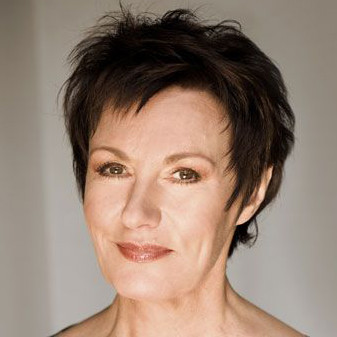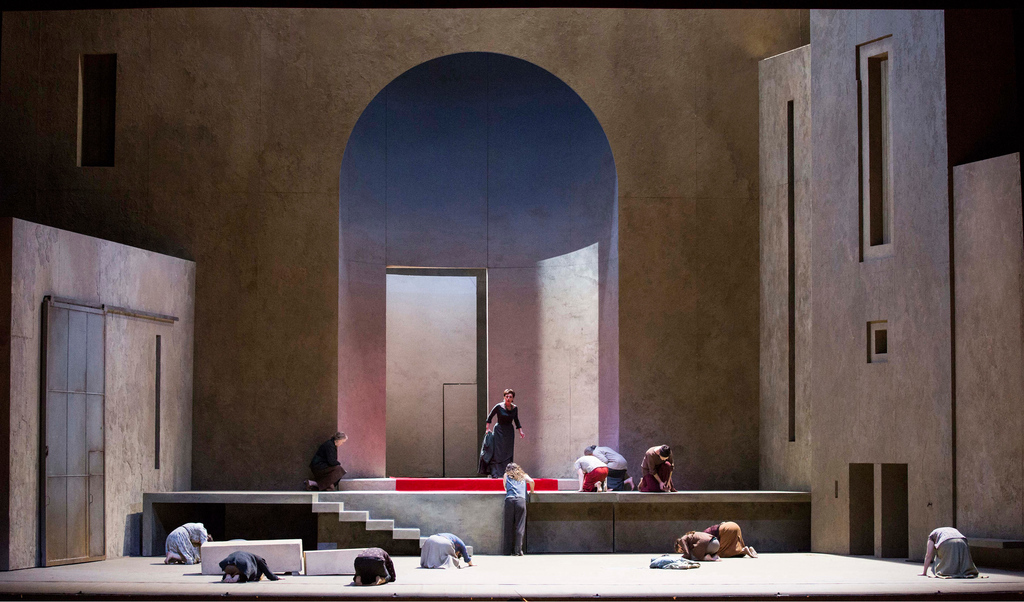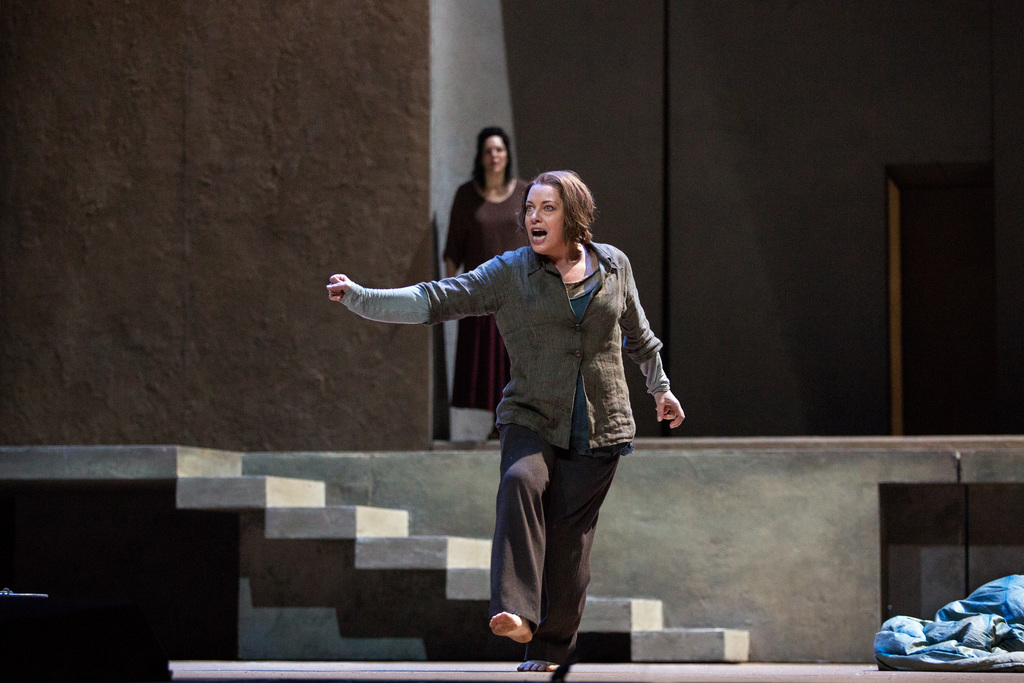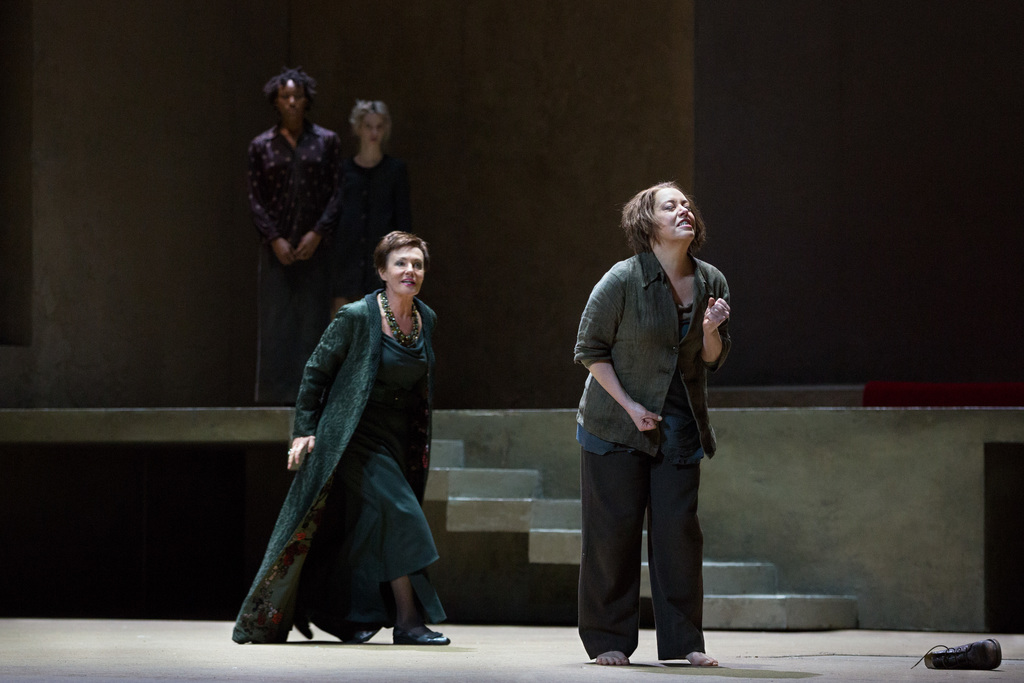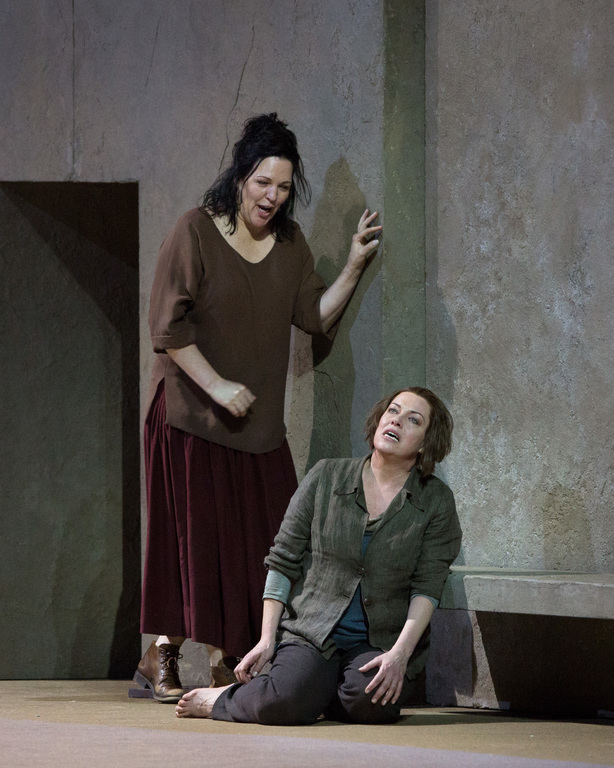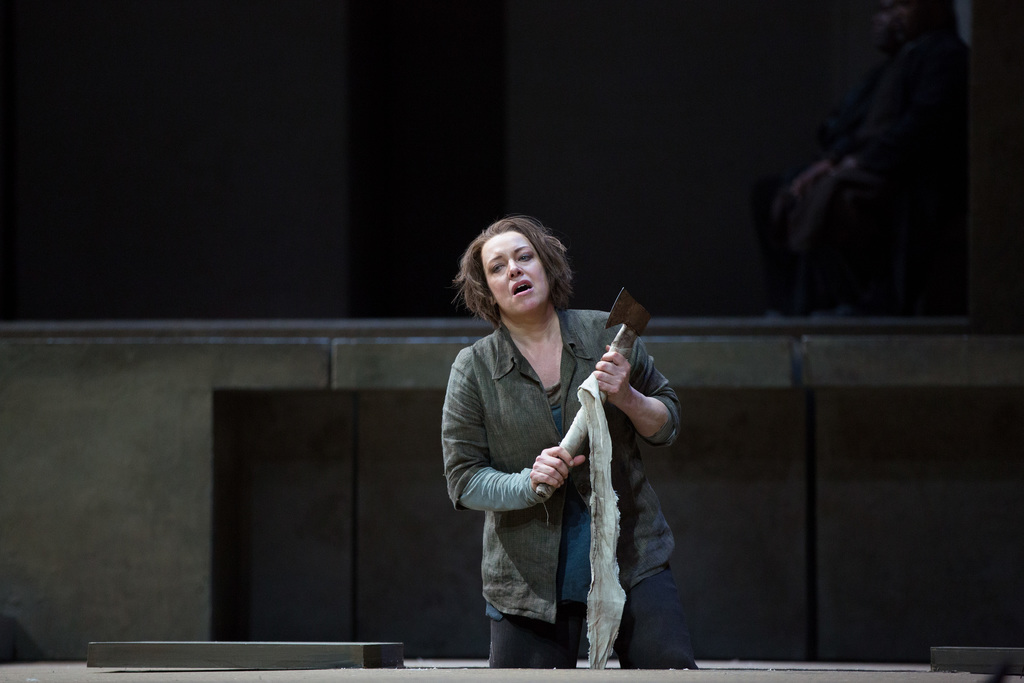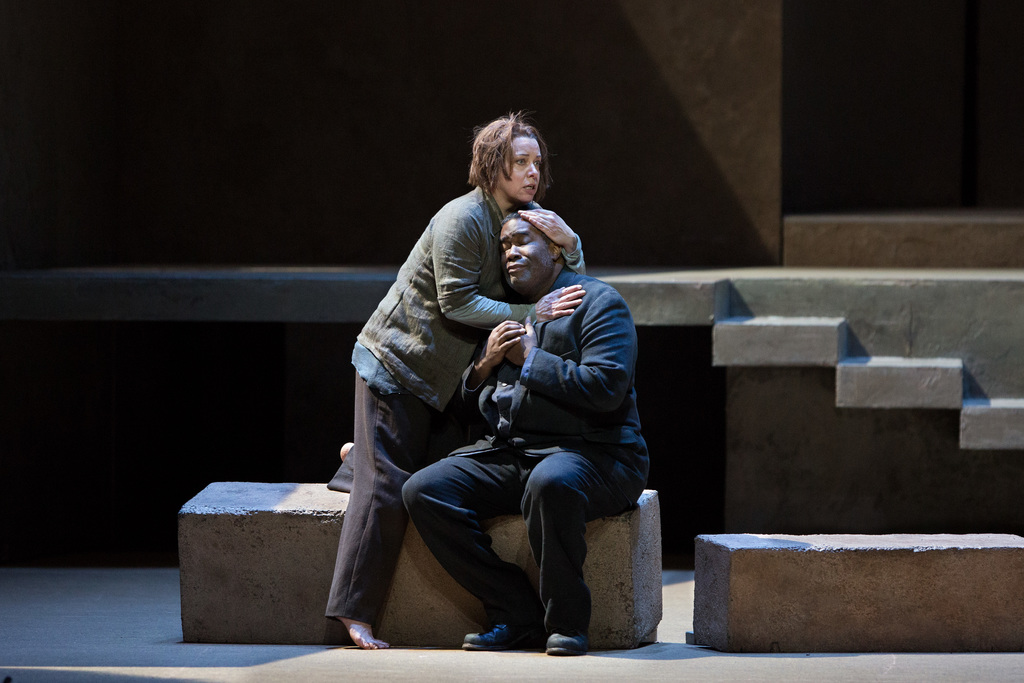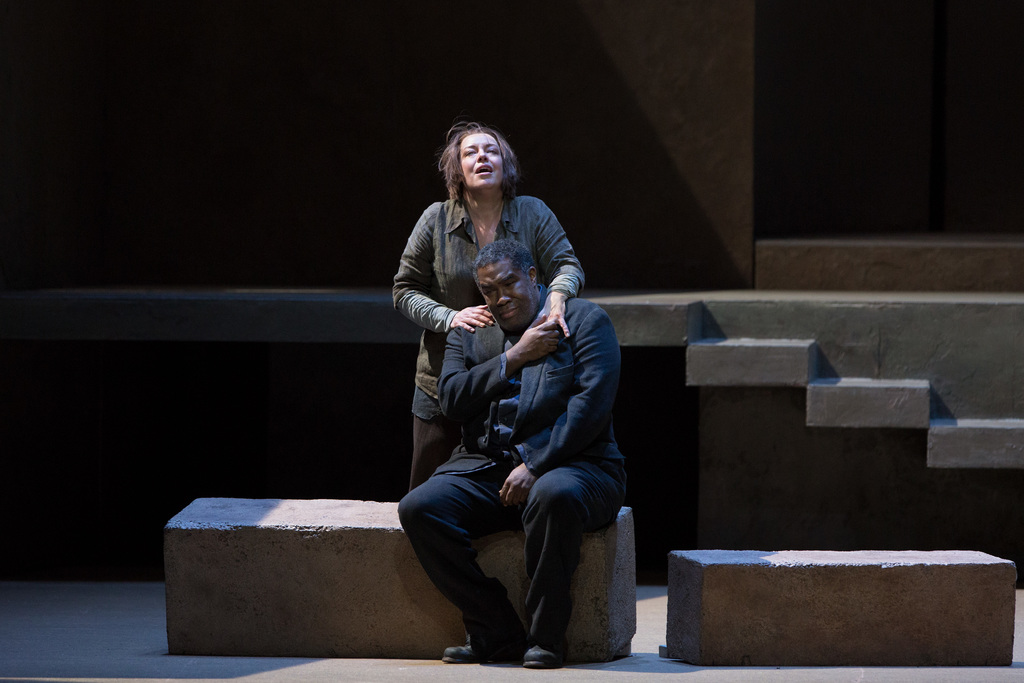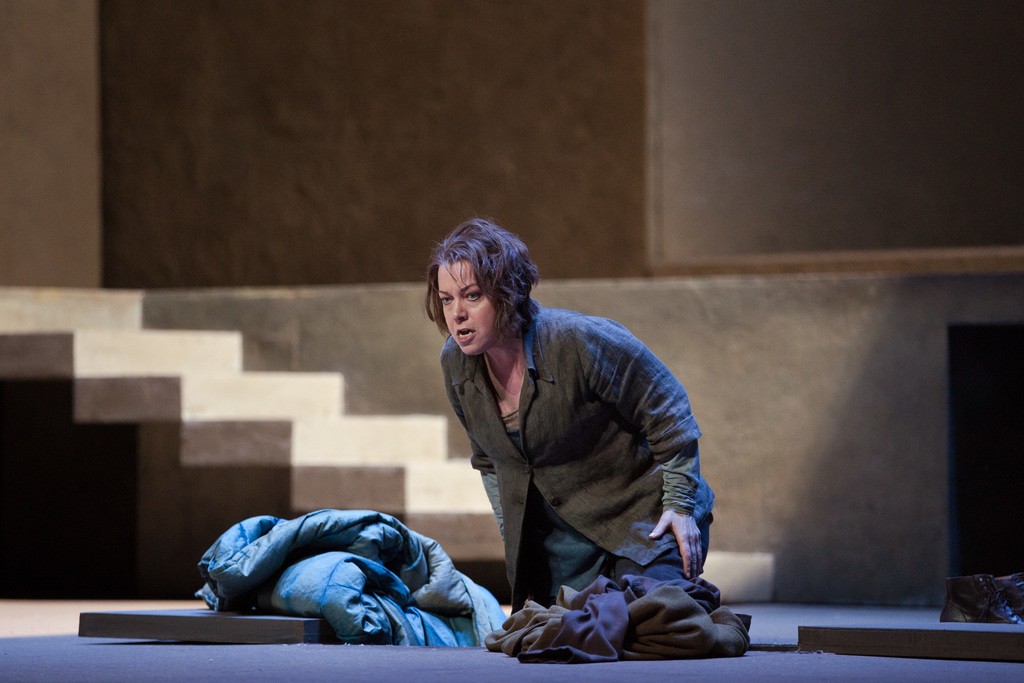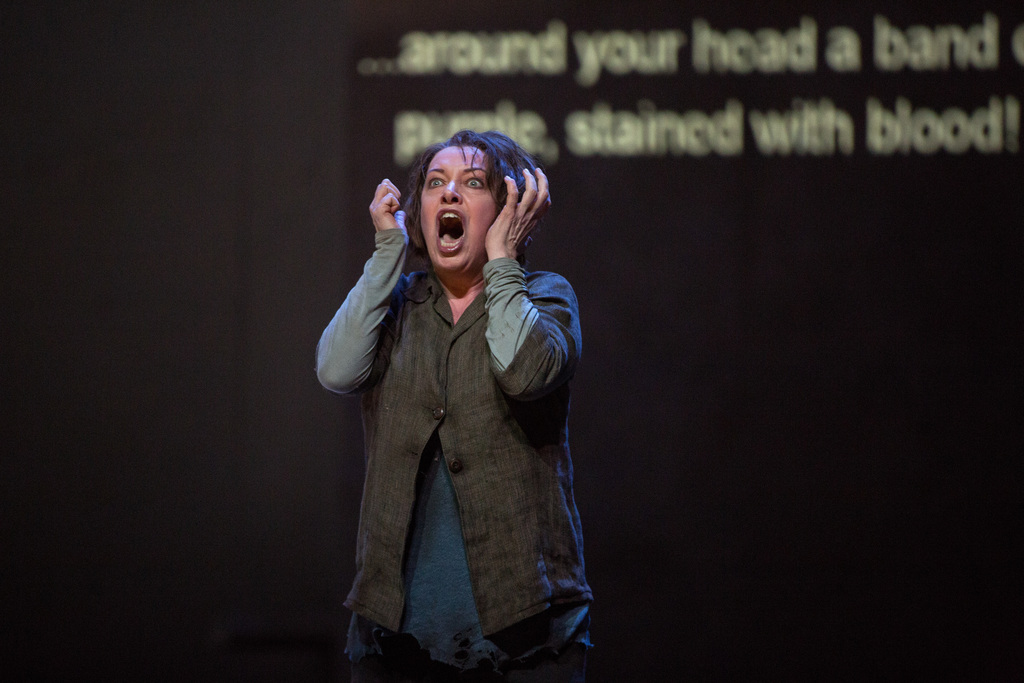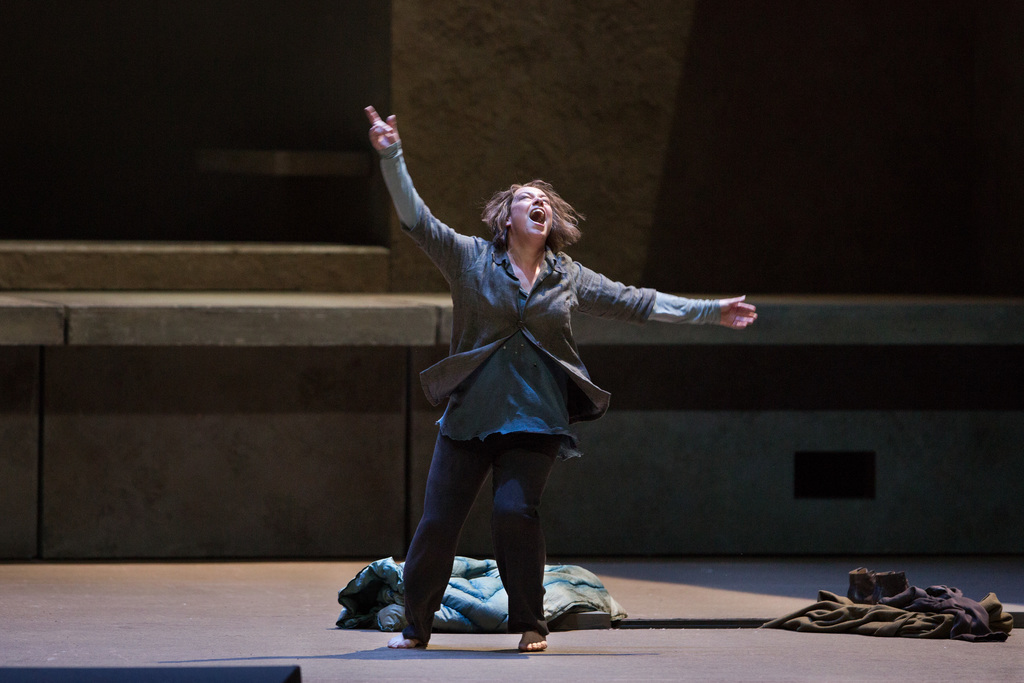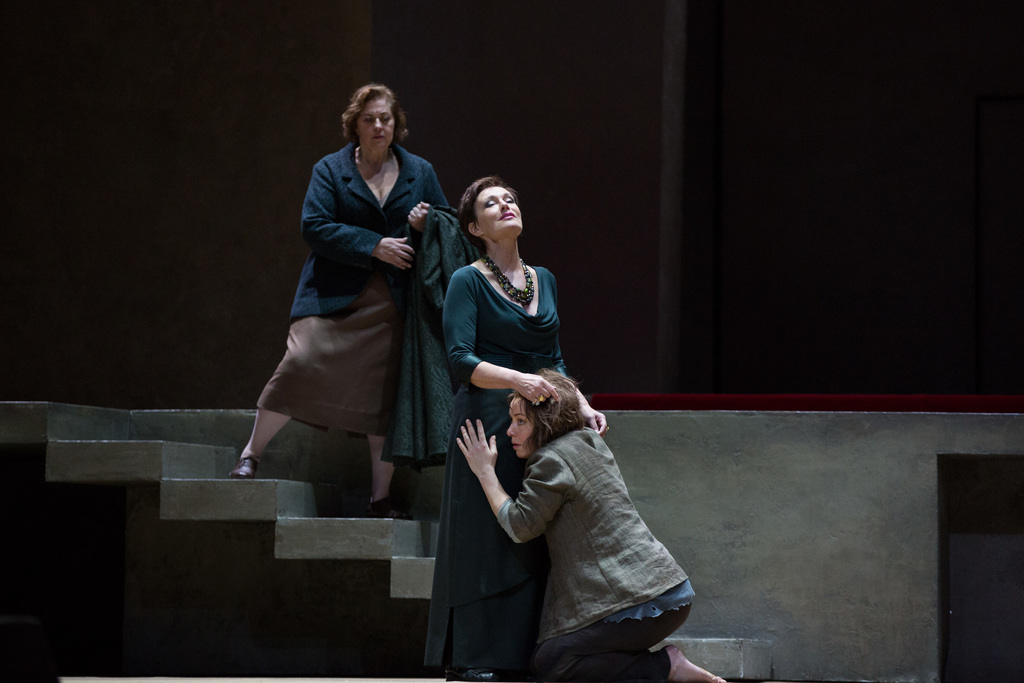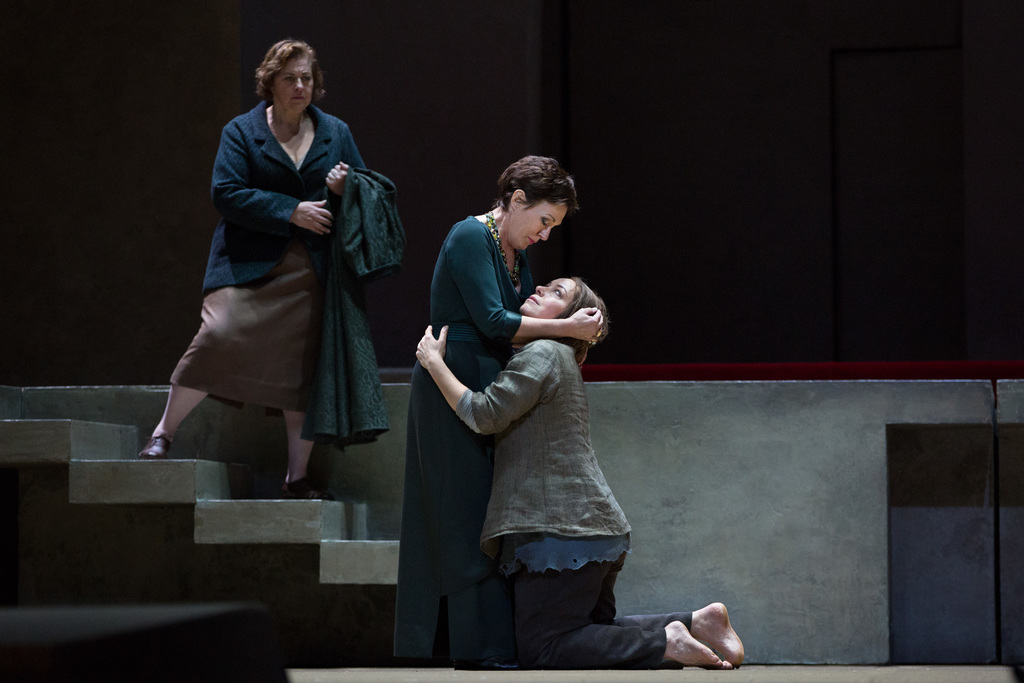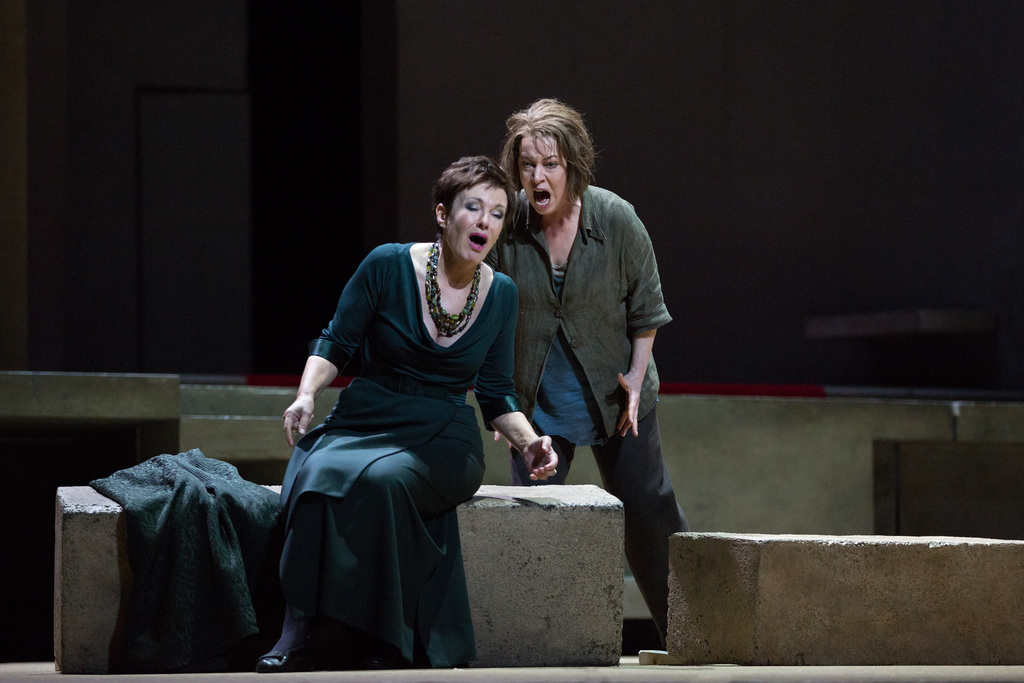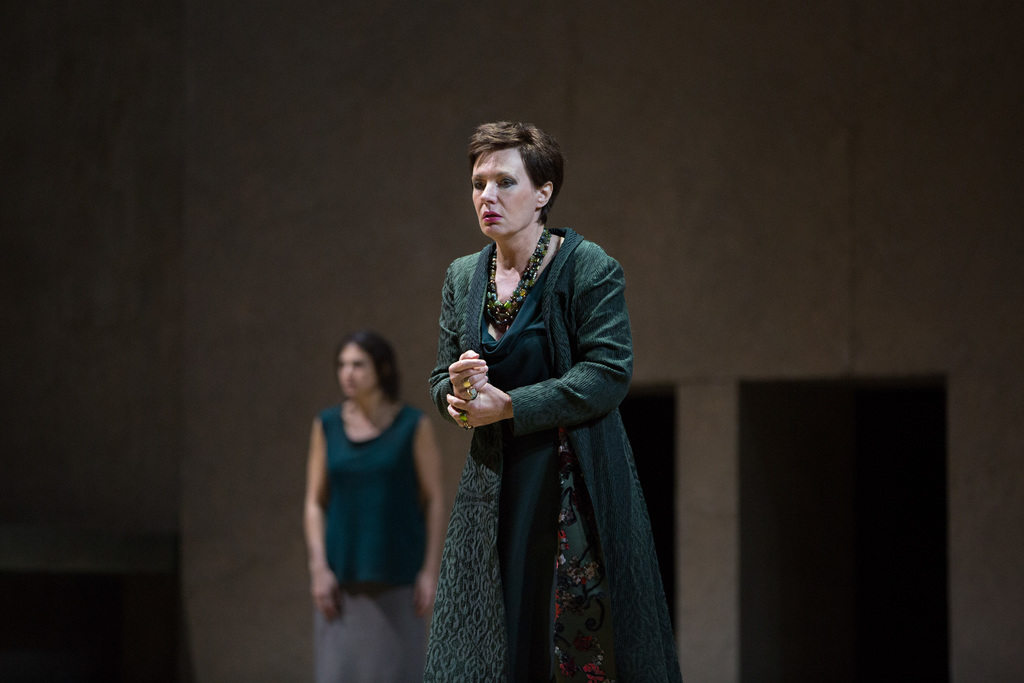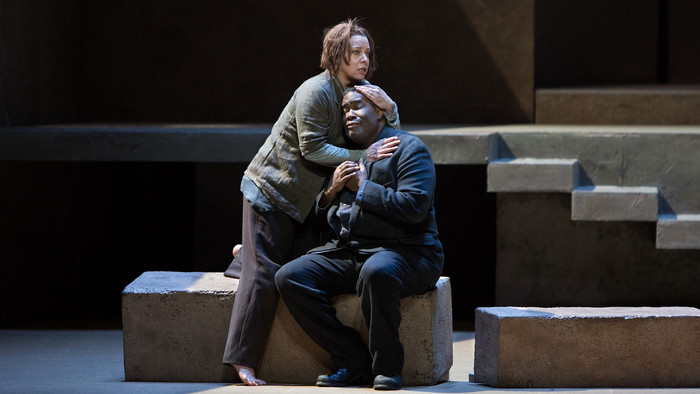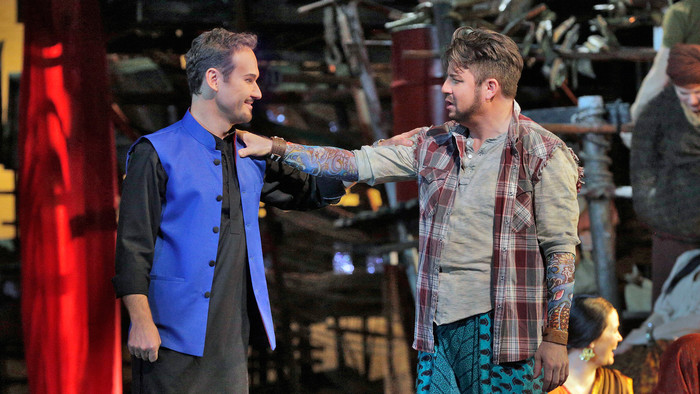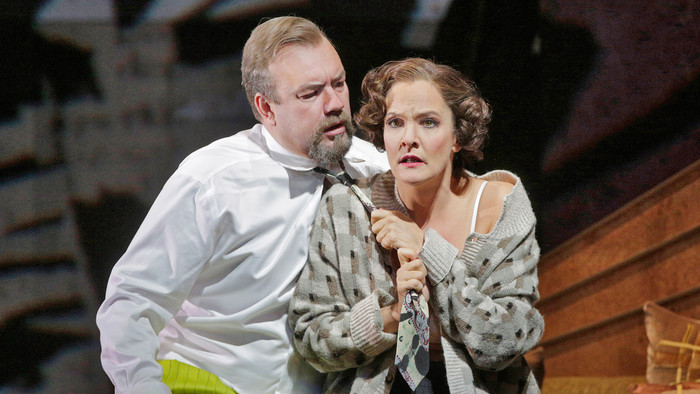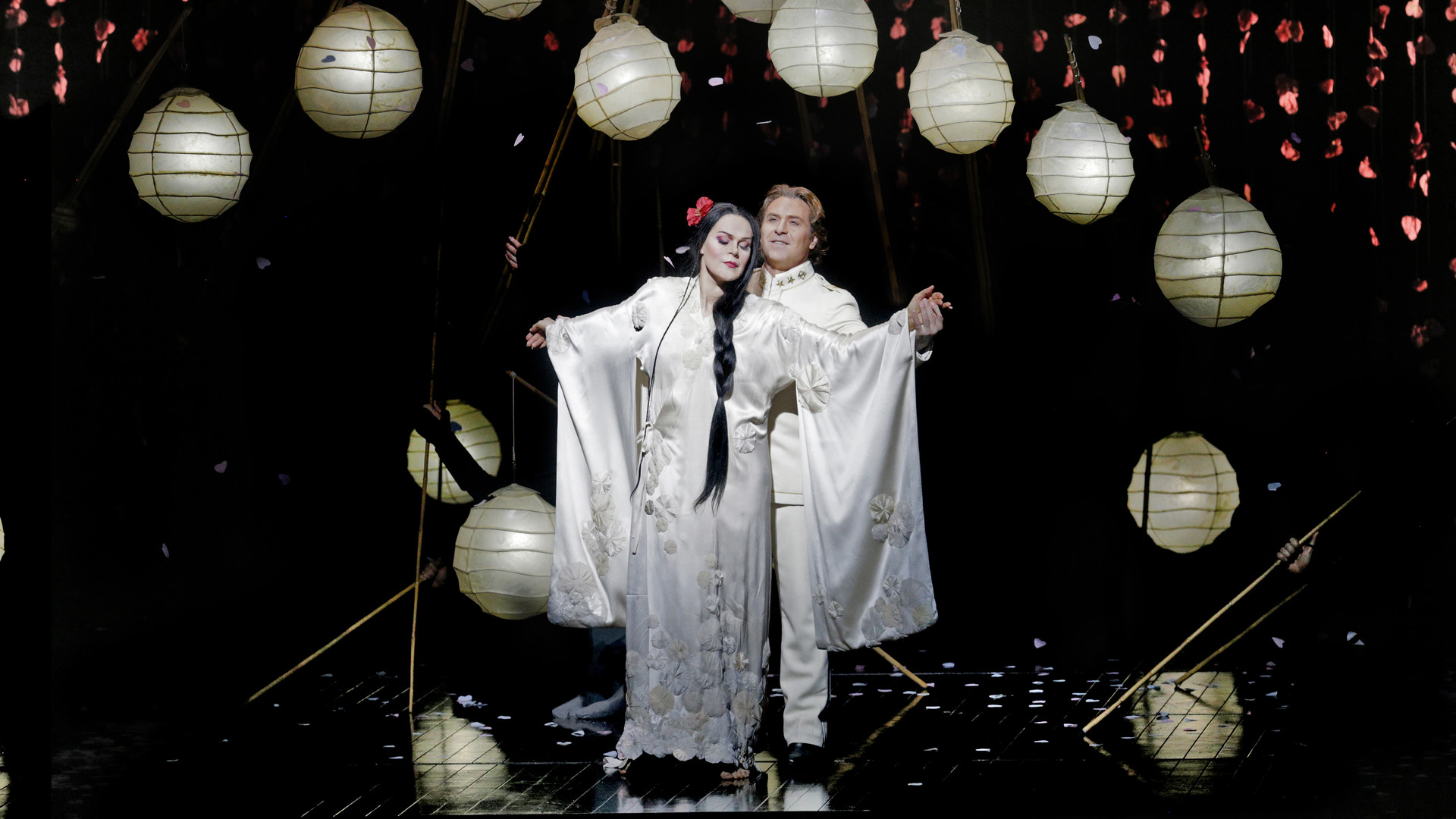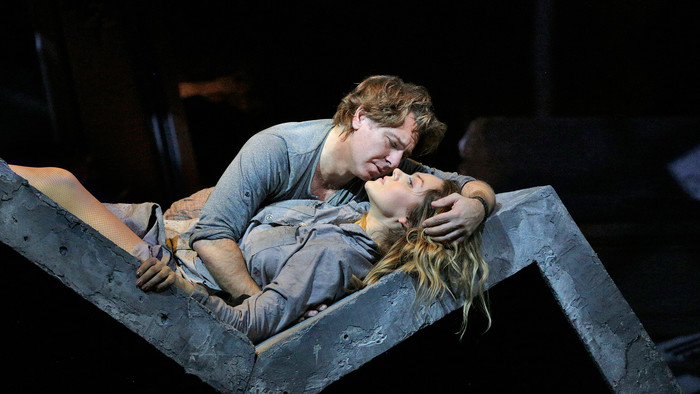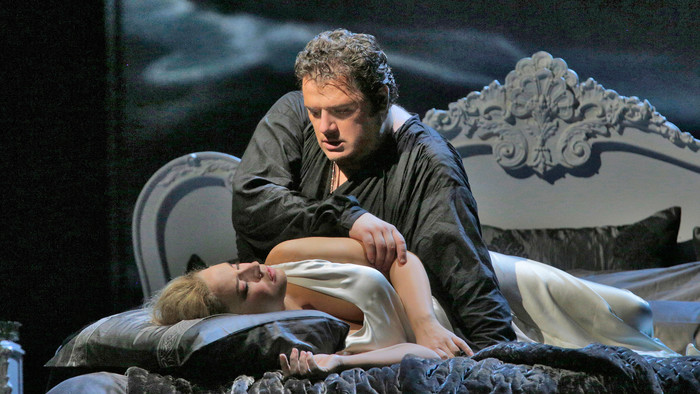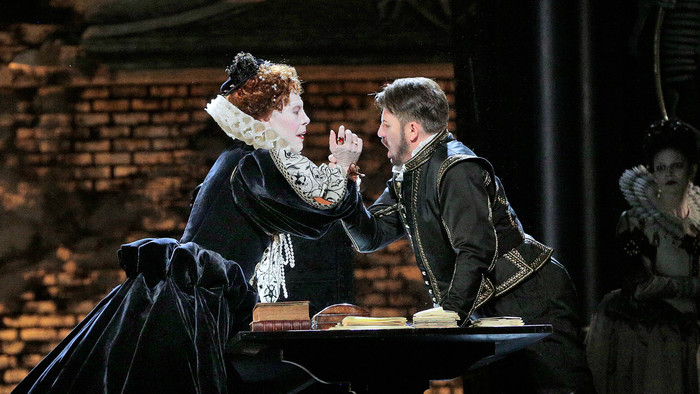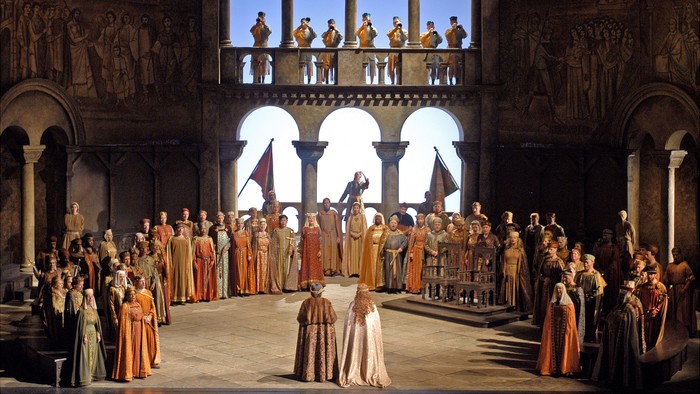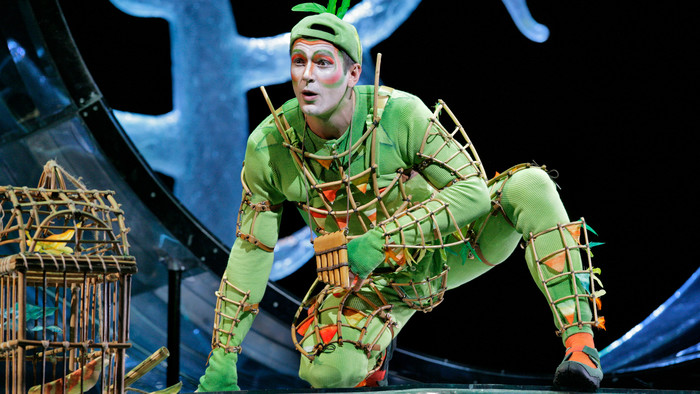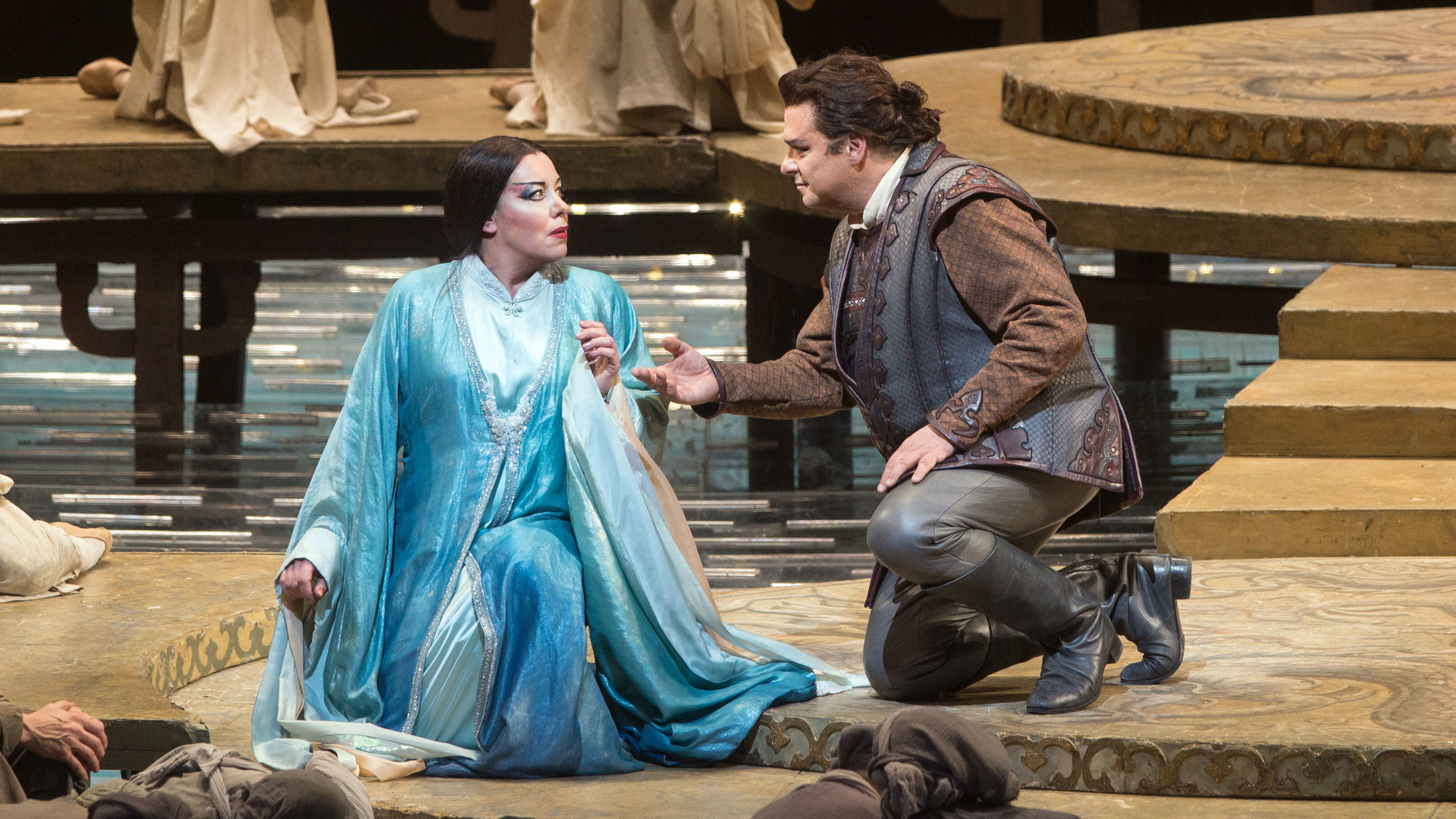The courtyard of the Palace of Mycenae. The servants wonder whether Elektra will be grieving over her father, as is her daily ritual. Daughter of King Agamemnon and Klytämnestra, Elektra appears and locks herself up in solitude straight away. The servants all criticize and mock her, except for one, who comes to her defense.
By herself, Elektra remembers how Agamemnon was assassinated upon his return from Troy, slain with an axe by Klytämnestra and her lover, Aegisth. Devastated with grief, Elektra is obsessed with the revenge she intends to take together with her sister, Chrysothemis, and her brother, Orest. The latter grew up far away from the palace, and Elektra keenly waits for him to return.
Chrysothemis interrupts Elektra, who is caught up in her thoughts, and warns her that Klytämnestra and Aegisth have decided to lock her up in a tower. Chrysothemis asks her sister to renounce vengeance and let life take over again. Elektra rejects the idea with disdain.
Klytämnestra arrives with her entourage. She has been preparing sacrifices, hoping to pacify the gods as she suffers from nightmares. She wants to talk to Elektra, and when her daughter’s words are more amenable than usual, Klytämnestra sends off her retinue and remains alone with the girl. Klytämnestra asks her daughter what remedy could restore her sleep, and Elektra reveals that a sacrifice may indeed free her from her nightmares. But when the queen, full of hope, asks who needs to be killed, Elektra replies that it is Klytämnestra herself who must die. Elektra goes on to describe with frenzied elation how her mother will succumb under Orest’s blows. Then the court is thrown into a panic: Two strangers have arrived and asked to be seen. The queen receives a message and leaves immediately without saying a single word to Elektra.
Chrysothemis frantically brings Elektra the terrible news: Orest is dead. At first, Elektra remains deaf to what has been said. Then, having lost all hope, she concludes that she and her sister must themselves take their vengeance without further delay. But Chrysothemis refuses to commit such a deed and flees. Elektra curses her, realizing that she will have to act alone.
One of the strangers, who claims to be a friend of Orest and has come to bear the news of his death, has now been at the court for a while. Elektra besieges him with questions. When she reveals her name, he is shaken. She doesn’t recognize him until the servants of the palace throw themselves at his feet: It is Orest who stands before her, Orest who tricked everyone into believing he was dead in order to sneak into the palace. Elektra is both elated and in despair—she feels immeasurable fondness for her brother and deep sadness about the life of a recluse she has chosen for herself. The two are interrupted by Orest’s guardian: The hour of vengeance has arrived, and the deed Orest has come to perform now needs to be done. Orest enters the palace. Elektra listens for the slightest noise. Klytämnestra is heard screaming as Orest slays her.
There is a moment of panic when the servants hear cries, but they flee when they learn that Aegisth is returning from the fields. As the sun is setting, he encounters Elektra, who, in a suddenly joyful mood, offers to light his way into the house. He discovers Klytämnestra’s body before Orest kills him as well.
Chrysothemis comes out of the palace and tells her sister about their brother’s return and the double murder of Klytämnestra and Aegisth. Elektra, hovering between ecstasy and madness, maintains that only silence and dance can celebrate their liberation. Beset by extreme frenzy, she dances until she drops: She will never be the one to have executed the act of revenge. Orest leaves the palace, alone and in silence.



